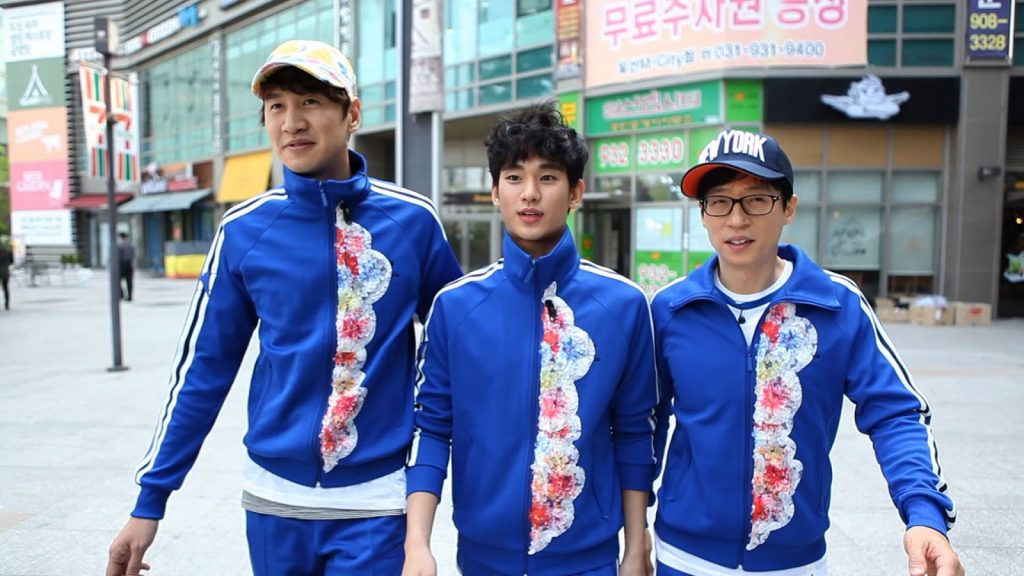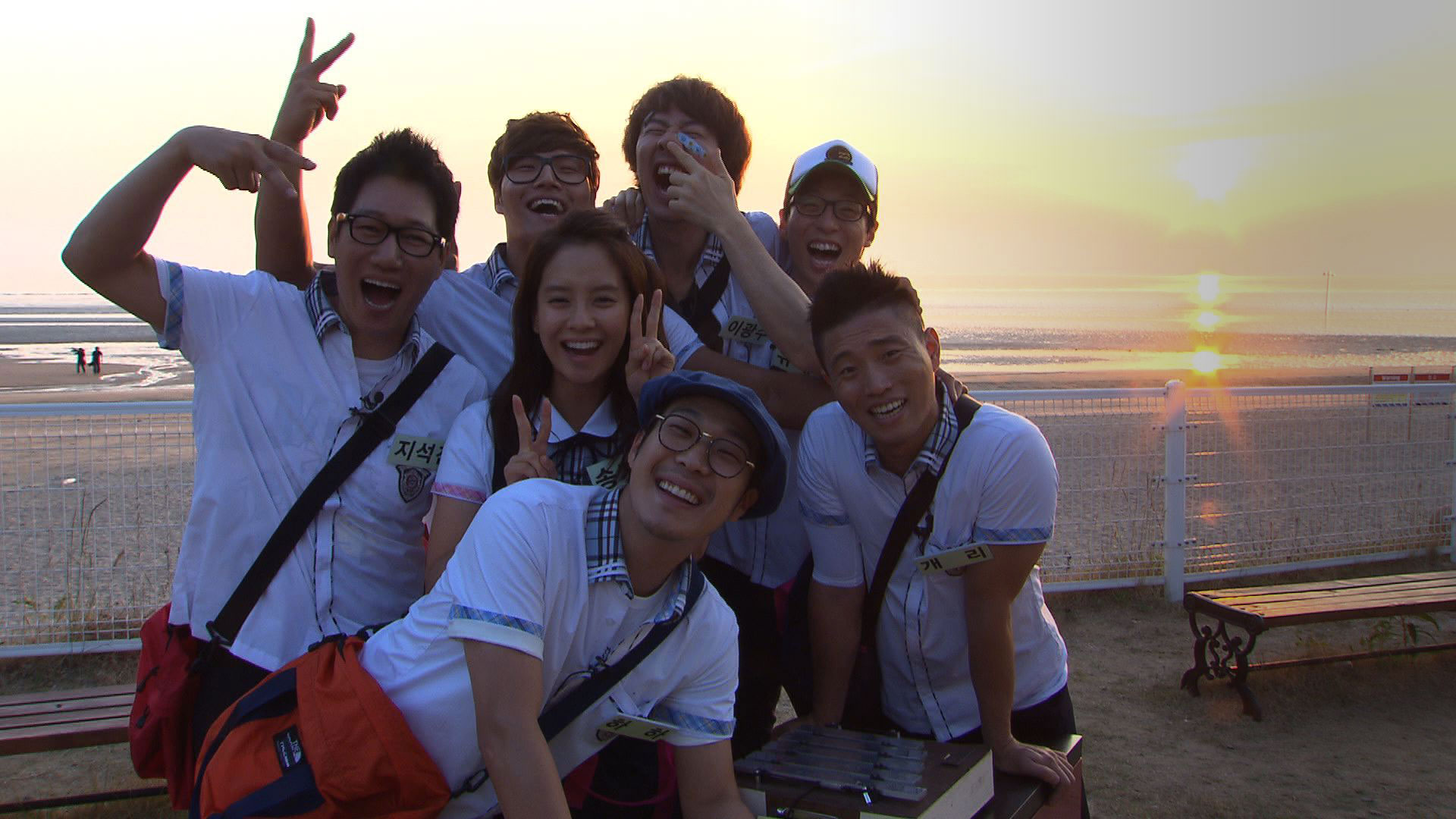My idea of something worth watching is The Sea Inside, an “indie” film about a man’s 28-year fight to win the legal right to end his own life. Yes, I’m one of those annoying people who insist on using the words ‘cinema’ and ‘film’ when really, I’m just talking about ‘movies’.
So for the longest time, I sneered from a distance at variety shows like Taiwan’s Kangsi Coming and South Korea’s Running Man. To the film snob in me, these shows were low brow entertainment; nonsensical, slapstick comedies one watches to forget that life is really just a carousel of meaningless pain and suffering.
Until I had a moment of introspection one day and thought, “Life is short, why not?” And so I decided to dip my feet into this crazy world.
Like every real life clique ever, Running Man thrives on its on-going narratives.
“With friends like these, who needs enemies?” goes a line in the Black Kids song Love Me Already. It’s also pretty much the slogan of Running Man, courtesy of one Lee Kwang Soo.
After he was introduced in the first episode, I quickly got to know him as the friend we all keep forgiving because well, maybe we grew up together or life just happens to keep throwing us together. He’s a dick and he never changes, but we accept it.
In this manner, my first impression of Running Man came to be of a running throwback to adolescence and growing up. I don’t mean this as an insult. As the group dynamic plays out on screen, one would be forgiven for thinking, “If only my friends and I had this.” Or at least this was what I thought to myself.
Episode 63 saw the guest appearance of K-pop girl group SNSD. When its first member Tae Yeon appeared, the men’s explosive overreactions brought back moments when as a teenager, my social circles used to consist of a handful of guys mixed with just one or two girls.
The girls were always treated with excessive concern, all while every boy in the group ensured they projected facades of masculine sophistication and effortless cool. As we got older, matured, and shed our collective pretense, these girls evolved into the ‘bros’ of the group. Similarly, Ji-hyo becomes one of the men as Running Man progresses. Inevitably, she ends up tangled with Gary (did not see this coming!—not).

Like every real life clique ever, Running Man thrives on its on-going narratives. There’s the whole Idols VS RM thing going on, the continuous threat of Choi Min Soo, and then there is Jae Suk’s ‘grasshopper’ nickname. The show feeds off these tropes, playing the characters’ pasts against their present selves, shaping our expectations of outcomes when comic skits merge with dramatic episodes.
At one point, I realise I’ve seen about 20 episodes, and I can’t stop overanalysing everything. But let’s assume for the sake of this article that I’m right, and that Running Man really is all about holding a mirror up to our experiences of growing up.
Suk-jin is that annoying friend who’s always getting left behind, insecure about his place in the group, yet constantly full of surprises. Haha is the one who can never get his emotions under control, and Jae-suk is the one who is always kinda stuck-up, yet quietly observant of everyone’s lives. He will probably write a book someday about how you all grew up together.
In many ways, the show’s charm recalls those moments when you’re drunk and everything is funny. Someone cracks a stupid joke, another escalates it, and some idiot tops it all off by choking on their beer, only to then snort it out through their nostrils in simultaneously hilarious, disgusting and excruciating fashion.
Beyond all this, Running Man works for the same reason that Korean dramas have such a large following. Characters are generally pretty good looking and likeable, and there are plenty of relatable moments.
Yet the truth is, a show like this requires a fair amount of time and emotional investment before you can truly enjoy it.
After a week of sincere participation in this universe, I’ll be honest: I haven’t grown to love Running Man. I can appreciate the ludicrous (and sometimes very good) rapping, exaggerated dances and cute Korean girls trying very hard to look pretty while participating in physically challenging activities.
Yet the truth is, a show like this requires a fair amount of time and emotional investment before you can truly enjoy it. Much like how we laugh the moment we see Jae Suk in a white coat calling himself a doctor, we already know what to expect from them the second each person appears.
It is this heady combination of predictability and anticipation that makes the show so addictive. And perhaps, at this moment, I don’t have the bandwidth for it. For a lot of my friends who love this show, it’s their go-to panacea after an exhausting or particularly soul-sucking day.
This, I get. But when I got to the skit in episode 38, where an attempt is made by the cast to cure a patient with “laughing” and “internal and external medication”, I found it frankly cringe-worthy. It just wasn’t that funny. Or I had not succeeded in allowing the characters to grow on me.
Now I’m not saying everyone should carve out time to indulge in all 317 episodes of Running Man and just give it a chance. For me, the show comes down to owning your goofiness and learning to be okay with being embarrassing in public. It’s an education in good, clean fun, handling your friends, and letting lesser emotions like pride and vanity go.
As with all variety-dramas, Running Man is part scripted and part spontaneous happenstance plus good acting. The film crew plays an important part in orchestrating story arcs, as do their real-time interactions with the characters during filming.
If anything, the nerdy question I’m left with at this point is, who are the film crews of our lives?






